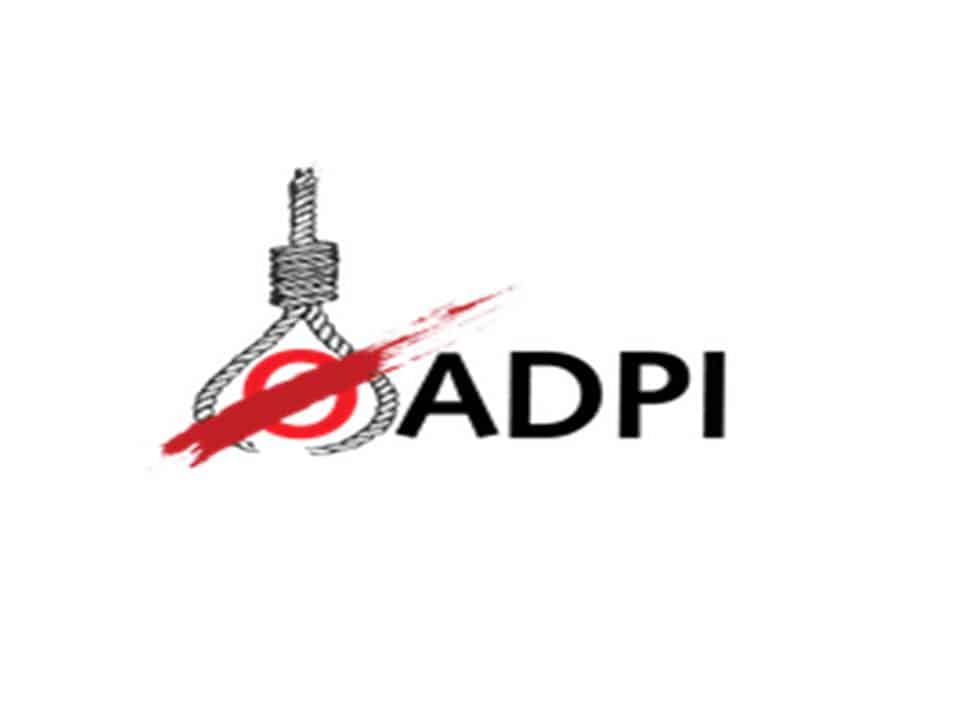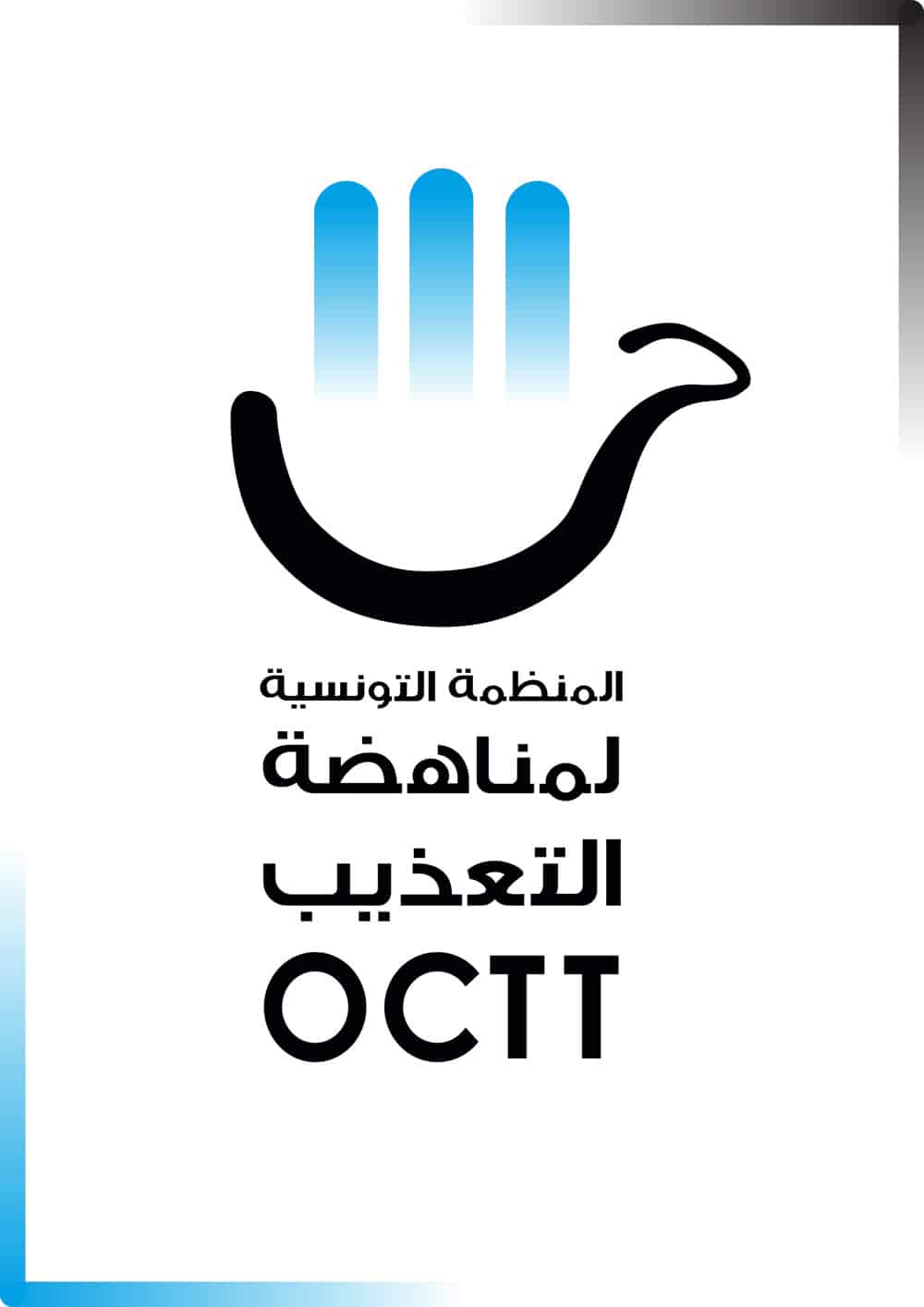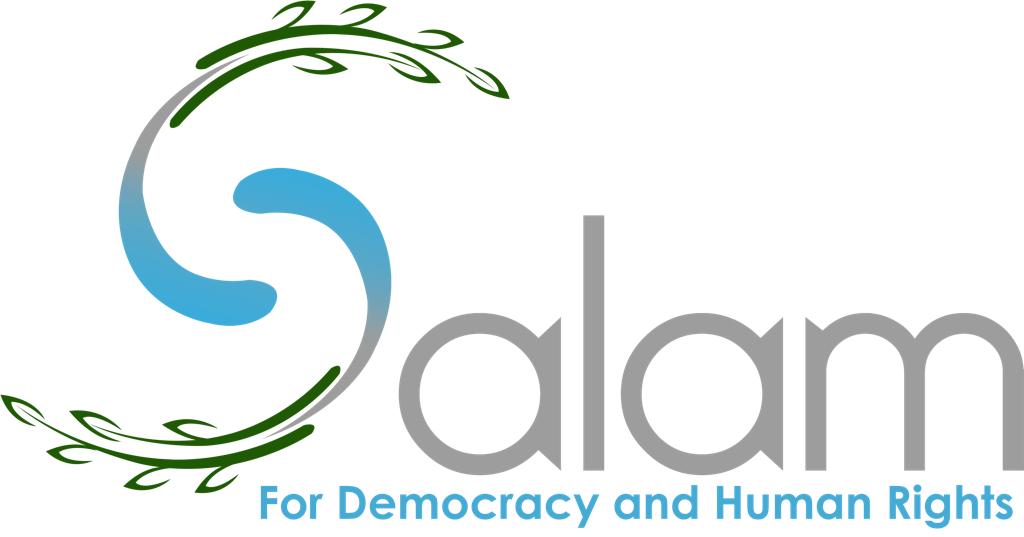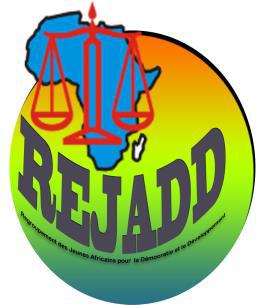Your search “Keep%20the%20death%20penalty%abolished%20in%20the%20ePhilippfines%20e%20e%20e%20e%20e%20e%20e%20e%20e%20e/page/www.humanrights.asia/resources/report/2011/AHRC-sur-008-2011/act_download/file ”
Document(s)
Deciding Death
By Corinna Barrett Lain / Duke Law Journal, on 1 January 2007
2007
Article
United States
More details See the document
When the Supreme Court is deciding death, how much does law matter? Scholars long have lamented the majoritarian nature of the Court’s Eighth Amendment “evolving standards of decency” doctrine, but their criticism misses the mark. Majoritarian doctrine does not drive the Court’s decisions in this area; majoritarian forces elsewhere do. To make my point, I first examine three sets of “evolving standards” death penalty decisions in which the Court implicitly or explicitly reversed itself, attacking the legal justification for the Court’s change of position and offering an extralegal explanation for why those cases came out the way they did. I then use political science models of Supreme Court decisionmaking to explain how broader social and political forces push the Court toward majoritarian death penalty rulings for reasons wholly independent of majoritarian death penalty doctrine. Finally, I bring the analysis full [*pg 2] circle, showing how broader sociopolitical forces even led to the development of the “evolving standards” doctrine. In the realm of death penalty decisionmaking, problematic doctrine is not to blame for majoritarian influences; rather, majoritarian influences are to blame for problematic doctrine. The real obstacle to countermajoritarian decisionmaking is not doctrine, but the inherently majoritarian tendencies of the Supreme Court itself.
- Document type Article
- Countries list United States
- Themes list Networks,
Document(s)
Executing the Mentally Ill: When Is someone Sane Enough to Die?
By Michael Mello / Criminal Justice, on 1 January 2007
Article
United States
More details See the document
Mental illness is a phenomenon that knifes across the entire corpus of our criminal justice system. From interrogations and waivers of Miranda rights, to consent to searches and seizures, to plea negotiations and the capacity to stand trial, to calculating sentences and participating in appellate and postconviction proceedings, mental illness warps the machinery of our criminal law and challenges its most cherished assumptions about free will, decisional competence, and culpability. This is so regardless of whether or not life hangs in the balance. But when the stakes are life and death, the structural distortions caused by mental illness become magnified, and the contradictions can rise to constitutional magnitude.
- Document type Article
- Countries list United States
- Themes list Mental Illness,
Document(s)
A New Profession for an Old Need: Why a Mitigation Specialist Must be Included on the Capital Defense Team
By Pamela Blume Leonard / Hofstra Law Review, on 1 January 2003
2003
Article
United States
More details See the document
The fundamental task of the mitigation specialist is to conduct a comprehensive social history of the defendant and identify all relevant mitigation issues. The 2003 revised edition of the American Bar Association Guidelines for the Appointment and Performance of Defense Counsel in Death Penalty Cases recognizes the mitigation specialist as an “indispensable member of the defense team throughout all capital proceedings.” What are the particular responsibilities and contributions of a mitigation specialist and what makes them so essential to the capital defense team as to warrant this long overdue recognition by the ABA Guidelines?
- Document type Article
- Countries list United States
- Themes list Legal Representation,
Document(s)
The Guiding Hand of Counsel’ and the ABA Guidelines for the Appointment and Performance of Defense Counsel in Death Penalty Cases
By Robin M. Maher / Hofstra Law Review, on 1 January 2003
Article
United States
More details See the document
The ABA has long been concerned with the provision of effective counsel for all criminal defendants, especially for those facing the death penalty. In 1989, the ABA first published its Guidelines for the Appointment and Performance of Counsel in Death Penalty Cases, which detailed the kind of competent, effective legal representation that all capital defendants were entitled to receive. Earlier this year, after a two-year effort drawing upon the expertise of a broad group ofdistinguished and experienced judges, lawyers, and academics, the ABA House of Delegates overwhelmingly approved revisions to those Guidelines to update and expand upon the obligations of death penalty jurisdictions to ensure due process of law and justice. “These Guidelines are not aspirational.” They articulate a national standard of care and the minimum that should be required in the defense of capital cases.
- Document type Article
- Countries list United States
- Themes list Legal Representation,
Document(s)
Litigating in the Shadow of Death
By Lawrence C. Marshall / University of Pittsburgh Law Review, on 1 January 2006
2006
Article
United States
More details See the document
One gets the strong sense that Professor White believed that the key to changing or abolishing the death penalty in the United States was to educate policymakers and the public about its practical operation. This, of course, was Justice Thurgood Marshall’s hypothesis in Furman v. Georgia: that the widespread support that the death penalty enjoys in the country is a product of mass ignorance about how it is applied. Professor White did not simply posit the theory, he dedicated much of his life to the mission of educating the public about the inequities of the American death penalty. This final book does that in an extraordinarily effective way by combing together studies of illustrative cases, analysis of the lawyers’ roles and dilemmas, and cogent explanations of the state of the law.
- Document type Article
- Countries list United States
- Themes list Networks,
Document(s)
Making the Last Chance Meaningful: Predecessor Counsel’s Ethical Duty to the Capital Defendant
By Lawrence J. Fox / Hofstra Law Review, on 1 January 2003
2003
Article
United States
More details See the document
The thesis of this paper is that lawyers who have represented clients in capital murder cases at trial and appeal—not unlike all criminal trial and initial appeal counsel, but more urgently because of the circumstances—continue to owe important obligations to their former clients. These obligations have been just recently included in the latest version of the American Bar Association’s Guidelines for the Appointment and Performance of Defense Counsel in Death PenaltyCases: In accordance with professional norms, all persons who are or have been members of the defense team have a continuing duty to safeguard the interests of the client and should cooperate fully with successor counsel. This duty includes, but is not limited to: A. maintaining the records of the case in a manner that will inform successor counsel of all significant developments relevant to the litigation; B. providing the client’s files, as well as information regarding all aspects of the representation, to successor counsel; C. sharing potential further areas of legal and factual research with successor counsel; and D. cooperating with such professionally appropriate legal strategies as may be chosen by successor counsel. It is my hope that this article will demonstrate that these Guidelines reflect not just best practice, but actual ethical mandates that trial counsel, like Bryan Saunders, owe their former clients as those clients negotiate the jurisprudential maze known as habeas corpus.
- Document type Article
- Countries list United States
- Themes list Legal Representation,
Document(s)
Physicians Willingness to Participate in the Process of lethal Injection for Capital Punishment
By Joan Weiner / Brian M. Aboff / Neil J. / Farber / Annals of Internal Medecine 135(10), 884-888 / Elizabeth B. Davis / E. Gil Boyer / Peter A. Ubel, on 1 January 2001
2001
Article
United States
More details See the document
Occasionally, physicians’ personal values conflict with their perceived societal duties. One example is the case of lethal injection for the purpose of capital punishment. Some states require that such lethal injections be performed by physicians. At the same time, leading medical societies have concluded that physicians should avoid participating in capital punishment. Physicians’ attitudes toward involvement in capital punishment may depend on how they balance their responsibilities to individuals against their duties to society. Other factors may include a desire to provide a more painless death for the prisoner or concern over the competency of other health care personnel. In a previous survey, we found that a majority of physicians condoned involvement of their fellow physicians in capital punishment. For the current study, we conducted another survey to ascertain physicians’ attitudes about their own involvement in capital punishment, as well as factors associated with these attitudes.
- Document type Article
- Countries list United States
- Themes list Lethal Injection,
Document(s)
Why an Independent Appointed Authority Is Necessary to Choose Counsel for Indigent People in Capital Punishment Cases
By Ronald J. Tabak / Hofstra Law Review, on 1 January 2003
2003
Article
United States
More details See the document
The revised ABA Guidelines for the Appointment and Performance of Defense Counsel in Death Penalty Cases require that an agency “independent of the judiciary” be responsible for “ensuring that each capital defendant in the jurisdiction receives high quality legal representation.” This independent agency “and not the judiciary or elected officials should select lawyers for specific cases.” These mandates reflect two realities that have become overwhelmingly clear: (1) judges—whether initially elected, subject to retention elections, or appointed—are subject to political pressures in connection with capital punishment cases; and (2) lawyers whom judges have appointed in capital punishment cases have frequently been of far lower quality than could have been selected.
- Document type Article
- Countries list United States
- Themes list Legal Representation,
Document(s)
Courtroom Contortions: How America’s application of the death penalty erodes the principle of equal justice under law
By Anthony G. Amsterdam / American Prospect, on 8 September 2020
2020
Article
United States
More details See the document
One cost this country pays for the death penalty is that its courts are constantly compelled to corrupt the law in order to uphold death sentences. That corruption soils the character of the United States as a nation dedicated to equal justice under law.This is not the only price we pay for being one of the very few democracies in the world that retains capital punishment in the 21st century. But it is a significant item on the cost side of the cost-benefit ledger, something that each thinking person ought to balance in deciding whether he or she supports capital punishment. And it warrants discussion because this cost is little understood. I have spent much of my time for the past 40 years representing death-sentenced inmates in appeals at every level of the state and federal judicial systems, and I am only lately coming to realize how large a tax the death penalty imposes on the quality of justice in those systems.
- Document type Article
- Countries list United States
- Themes list Networks,
Document(s)
Racial Disparity and Death Sentences in Ohio
By Marian R. Williams / Jefferson E. Holocomb / Journal of Criminal Justice, on 1 January 2001
2001
Article
United States
More details See the document
The use of the death penalty has resulted in a number of studies attempting to determine if its application is consistent with the guidelines established by the United States Supreme Court. In particular, many studies have assessed whether there are racial disparities in the imposition of death sentences. This study examined the imposition of death sentences in Ohio, a state largely ignored by previous research and that, until 1999, had not executed an inmate since 1963. Drawing from previous studies that have examined the issue in other states, this study assessed the likelihood that a particular homicide would result in a death sentence, controlling for race of defendant and victim and other relevant factors. Results indicated both legal and extralegal factors (including race of victim) were significant predictors of a death sentence, supporting many previous studies that concluded that race plays a role in the imposition of the death penalty.
- Document type Article
- Countries list United States
- Themes list Networks,
Document(s)
ON REDUCING WHITE SUPPORT FOR THE DEATH PENALTY: A PESSIMISTIC APPRAISAL
By Steven F. Cohn / Steven E. Barkan / Criminology and Public Policy, on 1 January 2005
2005
Article
United States
More details See the document
As Soss et al. (2003) point out, whites are the most influential racial groupand support the death penalty much more than blacks do. In the 2002GSS, 69.8% of whites favored the death penalty, compared with only42.1% of blacks. If white support for the death penalty was as low as blacksupport, it would be much more difficult for the Supreme Court to believethat “evolving standards of decency” had not evolved against capitalpunishment.
- Document type Article
- Countries list United States
- Themes list Public opinion, Public debate,
Document(s)
THE JURY IN THE TWENTY – FIRST CENTURY: AN INTERDISCIPLINARY CONFERENCE
By William J. Bowers / Ursula Bentele / Brooklyn Law Review, on 8 September 2020
2020
Article
United States
More details See the document
The first section below describes how, for many jurors, the decision about guilt appears to be so overwhelming that it prevents truly separate decision making about punishment. The second section focuses on the degree to which jurors feel constrained by what they view as a requirement to impose death if certain aggravating factors are present in the case. And finally, the third section explores the way in which mitigating evidence, even when it appears to have been extensive and credible, is ignored, devalued, or discredited.
- Document type Article
- Countries list United States
- Themes list Networks,
Document(s)
New Claims about Executions and General Deterrence: Déjà Vu All Over Again?
By Richard Berk / Journal of Empirical Legal Studies, on 1 January 2005
2005
Article
United States
More details See the document
A number of papers have recently appeared claiming to show that in the United States executions deter serious crime. There are many statistical problems with the data analyses reported. This paper addresses the problem of “influence,” which occurs when a very small and atypical fraction of the data dominate the statistical results.
- Document type Article
- Countries list United States
- Themes list Deterrence ,
Document(s)
Ten Years of Payne: Victim Impact Evidence in Capital Cases
By John H. Blume / Cornell Law Review, on 1 January 2003
2003
Article
United States
More details See the document
Part I of this Article will discuss the Court’s prior decisions in Booth and Gathers, and Parts II and III will briefly attempt to clarify the parameters of the Payne holding. Part IV of this Article will survey the current legal landscape of state and federal practice regarding the admissibility of VIE and argument. Finally, this Article will offer in conclusion some brief perspectives on several unresolved issues in this particularly thorny (and misguided) area of capital punishment jurisprudence.
- Document type Article
- Countries list United States
- Themes list Murder Victims' Families,
Document(s)
CAPITAL PUNISHMENT AND ELITE POLITICS: DISSENSUS AND THE DEATH PENALTY IN AMERICA
By Judith Randle / Studies in Law, Politics and Society, on 1 January 2003
Article
United States
More details See the document
Drawing from televised debates over capital punishment on CNN’s Crossfire from February 2000 to June 2002, I argue that Teles’s (1998) theory of “dissensus politics” is useful in understanding the U.S.’s preservation of capital punishment as well as current divisions in death penalty sentiment within the U.S. I pose the retention of capital punishment as the product of rival elites who are unwilling to forsake capital punishment’s moral character (and often the political benefits it offers), and who consequently ignore an American public that appears to have reached a measured consensus of doubt about the death penalty.
- Document type Article
- Countries list United States
- Themes list Public opinion, Public debate,
Document(s)
The Global Debate on the Death Penalty
By Sandra Babcock / Human Rights Magazine, on 1 January 2007
2007
Article
United States
More details See the document
Many human rights organizations and intergovernmental organizations, such as the European Union, see the death penalty as one of the most pressing human rights issues of our time and have taken an active role in persuading countries to halt executions. The debate over capital punishment in the United States—be it in the courts, in state legislatures, or on nationally televised talk shows—is always fraught with emotion. The themes have changed little over the last two or three hundred years. Does it deter crime? If not, is it necessary to satisfy society’s desire for retribution against those who commit unspeakably violent crimes? Is it worth the cost? Are murderers capable of redemption? Should states take the lives of their own citizens? Are current methods of execution humane? Is there too great a risk of executing the innocent?
- Document type Article
- Countries list United States
- Themes list Deterrence ,
Document(s)
Breaking new ground: The need for a protocol to the African Charter on the abolition of the death penalty in Africa
By Lilian Chenwi / African Human Rights Law Journal, on 1 January 2005
2005
Article
More details See the document
The question addressed in this article is whether there is need for a protocol on the abolition of the death penalty in Africa. The African Charter on Human and Peoples’ Rights (African Charter)2 makes no mention of the death penalty or the need to abolish it.3 Further, only six African states have ratified the Second Optional Protocol to the International Covenant on Civil and Political Rights (ICCPR), aiming at the abolition of the death penalty. Since the protocol would, most likely, take into consideration the unique problems of the continent, it stands a better chance of effectively supplementing the provisions of the African Charter than the Second Optional Protocol.
- Document type Article
- Themes list Public debate,
Document(s)
The death penalty in Africa
By Dirk van Zyl Smit / African Human Rights Law Journal, on 1 January 2004
2004
Article
More details See the document
This article examines the situation of the death penalty in Africa. It does so byaddressing three main questions: First, to what extent is the death penalty inAfrica in fact an issue about which one should be particularly concerned?Second, what are the restrictions on the death penalty in Africa? Third, whatis to be done to strengthen the restrictions on the death penalty in Africa? Inaddition, the article examines the question whether article 4 of the AfricanCharter on Human and Peoples’ Rights and its related provisions will inspirethe abolition of the death penalty. It is suggested that challenging mandatorydeath sentences, advancing procedural challenges, open debate onalternatives to the death penalty, and improving the national criminaljustice system will strengthen restrictions on the death penalty in Africa. Thearticle concludes that positive criminal justice reform rather than moralisticcondemnation is the most effective route to the eventual abolition of thedeath penalty in Africa.
- Document type Article
- Themes list Networks,
Document(s)
JURY INSTRUCTIONS REGARDING DEADLOCK IN CAPITAL SENTENCING
By Laurie B. Berberich / Hofstra Law Review, on 1 January 2001
2001
Article
United States
More details See the document
Questions regarding the jury’s inability to reach a unanimous decision are often asked of judges and similar uninformative responses are generally given. Is ignoringjuror concerns the proper method for handling jury inquiries about the result of juror non-unanimity in capital sentencing? Or should courts inform capital juries up-front of the consequences of their failure to reach a unanimous verdict?
- Document type Article
- Countries list United States
- Themes list Networks,
Document(s)
PROBING “LIFE QUALIFICATION” THROUGH EXPANDED VOIR DIRE
By John H. Blume / Sheri Lynn Johnson / Brian Threlkeld / Hofstra Law Review, on 1 January 2001
Article
United States
More details See the document
It turns out that voir dire in capital cases is woefully ineffective at the most elementary task—weeding out unqualified jurors.Empirical evidence reveals that many capital jurors are in fact unqualified to serve. Moreover, the ineffectiveness of the process is far from even-handed. A juror is not “death-qualified” if she would always vote against a death sentence, regardless of the circumstances, and a handful of the jurors who actually serve in capital cases are in fact unqualified for this reason.
- Document type Article
- Countries list United States
- Themes list Networks,
Document(s)
Death Sentencing in Black and White: An Empirical Analysis of the Role of Jurors’ Race and Jury Racial Composition
By William J. Bowers / Marla Sandys / Benjamin D. Steiner / University of Pennsylvania Journal of Constitutional Law, on 1 January 2001
Article
United States
More details See the document
Do black jurors view a crime or its appropriate punishment differently than their white counterparts? Are their perspectives influenced by the race of the defendant or victim? Are blacks on white-dominated capital juries intimidated or coerced into voting for the death penalty?
- Document type Article
- Countries list United States
- Themes list Networks,
Document(s)
Public Opinion on the Death Penalty in China: Results from a General Population Survey Conducted in Three Provinces in 2007/08
By Shenghui Qi / Dietrich Oberwittler / Max Planck Institute for Foreign and International Criminal Law, on 1 January 2008
2008
Article
China
More details See the document
The present project is concerned with the significant role that public opinion plays in the debate surrounding the death penalty and criminal policy in the People’s Republic of China, including possible public reaction to any planned abolishment of the death penalty. How is public opinion on the death penalty exhibited in China? What influence does public opinion on the death penalty have on legislative and judicial practice in China? The principal goal of the project is to analyze the links that exist between public opinion, criminal policy, legislation and legal practice, and to initiate attitudinal changes amongst political and legal actors as well as the public at large. A further objective is to guide Chinese criminal law reform, particularly with regard to a possible reduction in the number of capital offences, against the background of the ratification of the International Covenant on Civil and Political Rights
- Document type Article
- Countries list China
- Themes list Public opinion,
Document(s)
Preventing the Execution of the Innocent: Testimony Before the House Judiciary Committee.
By Peter Neufeld / Hofstra Law Review, on 1 January 2001
2001
Article
United States
More details See the document
There have been at least sixty-seven postconviction DNA exonerations in the United States. Our Innocence Project at the Benjamin N. Cardozo School of Law has either assisted or been the attorney of record in thirty-nine of those cases, including eight men who served time on death row. For all of these men, existing appellate remedies failed to catch the mistakes and correct the injustice. In one third of the exonerations, bad lawyering contributed to their convictions yet in only one case was ineffective assistance of counsel recognized by an appellate court. Mistaken eyewitness identification was a critical factor in almost 90% of the unjust convictions yet not a single trial or appellate court found the eyewitness testimony to be unreliable.
- Document type Article
- Countries list United States
- Themes list Innocence,
Document(s)
STRENGTHENING THE DEFENCE IN DEATH PENALTY CASES IN THE PEOPLE´S REPUBLIC OF CHINA: Empirical Research into the Role of Defence Councils in Criminal Cases Eligible for the Death Penalty
By Hans Jörg Albrecht / Max Planck Institute for Foreign and International Criminal Law, on 1 January 2006
2006
Article
China
More details See the document
This project examines the role of defence councils in Chinese criminal proceedings that can end up with the imposition of the death penalty. It aims to review the problems defence lawyers face in such proceedings, the defence strategies they apply and to examine whether the assignment of a defence lawyer makes a difference in the outcome of a criminal trial. Moreover, the project explores what can and should be done to empower defence councils to effectively represent suspects and accused in death penalty eligible cases.The objective of the study is to shed light on the problems experienced by criminal defence councils when defending capital crime cases and to generate information on how death penalty cases are processed through the Chinese system of justice as well as the determinants of the outcomes death penalty eligible criminal cases.
- Document type Article
- Countries list China
- Themes list Legal Representation,

Member(s)
Abolition Death Penalty of Iraq Organization
on 30 June 2023
According to the Abolition Death Penalty of Iraq Organization, capital punishment is the state’s terminology for murder. Individuals murder each other, but states sentence individuals to ‘capital punishment.’ The demand to end capital punishment and prohibit murder stems from opposition to intentional, deliberate and planned murder of one by the other. That a state or […]
2023
Iraq

Member(s)
Organisation Contre la Torture en Tunisie – OCTT
on 8 September 2023
The OCTT has been campaigning since its creation in 2003 against torture in all its forms and in particular the death penalty and against impunity. The OCTT develops strategies and programs to promote human rights and eradicate torture and ill-treatment and against any violation of physical and moral integrity and primarily the right to life. […]
2023
Tunisia

Member(s)
Death Penalty Research Unit (DPRU), University of Oxford
on 15 December 2023
The Death Penalty Research Unit has three main aims: to develop empirical, theoretical and policy-relevant research on the death penalty worldwide; to encourage death penalty scholarship including at graduate level, through education, events, research dissemination and an active blog; and to engage in knowledge production, exchange and dissemination in cooperation with civil society, charities, legal […]
2023
United Kingdom
Document(s)
Poster 2022 German – 20. Welttag gegen die Todesstrafe
By the World Coalition Against the Death Penalty, on 7 July 2022
2022
More details Download [ pdf - 19959 Ko ]
Welttag gegen die Todesstrafe Poster
- Document type Array
Document(s)
No death penalty: Essay on the human dignity of the guilty
By Alfredo De Francesco , on 11 January 2022
2022
Book
More details See the document
Is the death penalty “natural” or sometimes legally due?
If not, is the death penalty always a political instrument?
If so, how and why can it be said that the death penalty is unjust, also considering religious values?
What about in case of war time or of very dangerous criminals?
In which way can there be an irrefutable argument for banning the death penalty worldwide and forever?
These and other issues concerning the death penalty are addressed by the Author of this book.
A book, where the most common theories for and against the death penalty are considered in the light of law history and philosophical views, and where Cesare Beccaria’s approach is revised, taking into account the development of the contemporary criminal law and of the legal positivism.
This is an essay, where the protection of humanity is not considered simply as a hope or as a naive dream, but rather as a juridical concept, absolutely necessary to understand one of most tragic questions of all time: “is it just to kill those who killed?”
- Document type Book
Document(s)
Fourteen Days in May
By Paul Hamann, on 30 November 2018
2018
Arguments against the death penalty
Multimedia content
Death Row Conditions
More details See the document
Fourteen Days in May is a documentary directed by Paul Hamann. The program recounts the final days before the execution of Edward Earl Johnson, an American prisoner convicted of rape and murder.
The documentary crew, given access to the prison warden, guards and chaplain and to Johnson and his family, filmed the last days of Johnson’s life in detail. The documentary argues against the death penalty and maintains that capital punishment is disproportionately applied to African-Americans convicted of crimes against whites. The programme features attorney Clive Stafford Smith, an advocate against capital punishment.
- Document type Arguments against the death penalty / Multimedia content
- Themes list Death Row Conditions
Document(s)
World Day Poster 2022
By the World Coalition Against the Death Penalty, on 9 June 2022
2022
Campaigning
World Coalition
aresfafrruzh-hantMore details Download [ pdf - 4097 Ko ]
20th World Day on “Torture and the death penalty”.
- Document type Campaigning / World Coalition
- Available languages 2022 ملصق اليوم العال مPoster Spanish – 2022 Día Mundial contra la Pena de MuertePoster Farsi 2022 - بیستمین روز جهانی علیهمجازات مرگAffiche Journée mondiale 2022Poster Russian 2022 - 20Й ВСЕМИРНЫЙ ДЕНЬ ПРОТИВ СМЕРТНОЙ КАЗНИPoster Chinese 2022- 第20届世界反死刑日
Document(s)
Poster 2022 Houssa – 20TH RANAR YAKI DA HUKUMCIN KISA TA DUNIYA
By the World Coalition Against the Death Penalty, on 7 July 2022
2022
More details Download [ pdf - 19959 Ko ]
- Document type Array
Document(s)
Poster Italian – 20 GIORNATA MONDIALE CONTRO LA PENA DI MORTE
By the World Coalition Against the Death Penalty, on 7 July 2022
World Coalition
More details Download [ pdf - 19959 Ko ]
- Document type World Coalition
Document(s)
Shattered Justice – Crime Victims’ Experiences with Wrongful Convictions and Exonerations
By Kimberly J. Cook, on 12 August 2022
2022
Book
United States
More details See the document
Shattered Justice presents original crime victims’ experiences with violent crime, investigations and trials, and later exonerations in their cases. Using in-depth interviews with 21 crime victims across the United States, Cook reveals how homicide victims’ family members and rape survivors describe the painful impact of the primary trauma, the secondary trauma of the investigations and trials, and then the tertiary trauma associated with wrongful convictions and exonerations. Important lessons and analyses are shared related to grief and loss, and healing and repair. Using restorative justice practices to develop and deliver healing retreats for survivors also expands the practice of restorative justice. Finally, policy reforms aimed at preventing, mitigating, and repairing the harms of wrongful convictions is covered.
- Document type Book
- Countries list United States
Document(s)
Poster Lingala 2022 – Mokolo ya kobundela etumbu ya liwa na mokili mobimba
By the World Coalition Against the Death Penalty, on 7 July 2022
2022
World Coalition
More details Download [ pdf - 19960 Ko ]
- Document type World Coalition
Document(s)
Poster Singhala 2022 – 20 වන ජගත් මරණ දඬුවමට එෙරහි දිනය
By the World Coalition Against the Death Penalty, on 8 July 2022
2022
World Coalition
More details Download [ pdf - 19959 Ko ]
- Document type World Coalition
Document(s)
Poster Swahili 2022 – MIAKA 20 YA MAADHIMISHO YA KUPINGA ADHABU YA KIFO DUNIANI
By the World Coalition Against the Death Penalty, on 8 July 2022
World Coalition
More details Download [ pdf - 19960 Ko ]
- Document type World Coalition
Document(s)
Poster Tamil 2022 – மரண தண்டைனக்ெகதிரான இருபதாவது உலக நாள்
By the World Coalition Against the Death Penalty, on 8 July 2022
World Coalition
More details Download [ pdf - 5049 Ko ]
- Document type World Coalition
Document(s)
Poster Urdu 2022 – سزائے موت کے خلاف بیسواں عالمی دن
By the World Coalition Against the Death Penalty, on 8 July 2022
More details Download [ pdf - 19959 Ko ]
- Document type Array
Document(s)
Poster 2022 Turkish – 20.CI ÖLÜM CEZASINA KARŞI DÜNYA GÜNÜ
By the World Coalition Against the Death Penalty, on 5 August 2022
2022
World Coalition
More details Download [ pdf - 5076 Ko ]
World Day 2022 Poster in Turkish – ÖLÜM CEZASI: İŞKENCEYLE DÖŞELI BIR YOLDUR
- Document type World Coalition
Document(s)
He Called Me Sister
By Suzanne Craig Robertson, on 24 February 2023
2023
Book
Death Row Conditions
United States
More details See the document
The fascinating, moving story of a friendship with an inmate on death row. It was a clash of race, privilege, and circumstance when Alan Robertson first signed up through a church program to visit Cecil Johnson on Death Row, to offer friendship and compassion. Alan’s wife Suzanne had no intention of being involved, but slowly, through phone calls and letters, she began to empathize and understand him. That Cecil and Suzanne eventually became such close friends—a white middle-class woman and a Black man who grew up devoid of advantage—is a testament to perseverance, forgiveness, and love, but also to the notion that differences don’t have to be barriers. This book recounts a fifteen-year friendship and how trust and compassion were forged despite the difficult circumstances, and how Cecil ended up ministering more to Suzanne’s family than they did to him. The story details how Cecil maintained inexplicable joy and hope despite the tragic events of his life and how Suzanne, Alan, and their two daughters opened their hearts to a man convicted of murder. Cecil Johnson was executed Dec. 2, 2009.
- Document type Book
- Countries list United States
- Themes list Death Row Conditions
Document(s)
No one is spared – The widespread use of the death penalty in Iran
By League for the Defence of Human Rights in Iran, on 5 November 2020
2020
Drug Offenses
Fair Trial
Iran (Islamic Republic of)
Juveniles
Women
More details See the document
- Document type Array
- Countries list Iran (Islamic Republic of)
- Themes list Drug Offenses / Fair Trial / Juveniles / Women
Document(s)
Capital Punishment & Social Rights Research Initiative – Texas
By Barbara Laubenthal, on 12 February 2023
2023
Multimedia content
Death Row Conditions
United States
More details See the document
The Capital Punishment and Social Rights Research Initiative assesses and analyzes the access of men and women on U.S. death rows to social rights such as health care, social contacts, visitation, communication, recreation and spiritual support. CPSR’s info series on living conditions on death row, state by state. Part 1: Texas
- Document type Multimedia content
- Countries list United States
- Themes list Death Row Conditions
Document(s)
Voting record – Draft resolution A/C.3/75/L.41 as amended, Moratorium on the use of the death penalty
By United Nations General Assembly, on 18 November 2020
2020
International law - United Nations
zh-hantMore details See the document
Document(s)
I Spent A Day With Death Row Survivors
By Anthony Padilla, on 1 January 2020
2020
Multimedia content
United States
More details See the document
Anthony Padilla interviewed 4 death row survivors to shed light on sentencing innocent people to death for a crime they did not commit. Derrick Jamison, Nick Yarris, Peter Pringle and Sunny Jacobs spent between 15 and 23 years awaiting executions, before being finally released from death row.
- Document type Multimedia content
- Countries list United States
Document(s)
Let the Lord Sort Them. The Rise and Fall of the Death Penalty
By Maurice Chammah, on 27 January 2021
2021
Book
Public Opinion
United States
More details See the document
Maurice Chammah (The Marshall Project) explores the rise and fall of capital punishment in Texas where it appears to durably decline in spite of the state’s long use of the death penalty.
- Document type Book
- Countries list United States
- Themes list Public Opinion

Member(s)
SALAM for Democracy and Human Rights (SALAM DHR)
on 30 April 2021
SALAM for Democracy and Human Rights (SALAM DHR) is an NGO that endeavors to preserve universal principles of dignity and respect by shielding democracy and human rights. SALAM DHR conducts monitoring and analysis, produces reports, develops recommendations on policy and legislation, organizes advocacy campaigns, conducts trainings, and builds effective coalitions. SALAM DHR is actively involved […]
2021
Bahrain

Member(s)
LBH Masyarakat (Community Legal Aid Institute)
on 5 May 2021
LBH Masyarakat (Community Legal Aid Institute) is a collective of individuals who believe that every human has potential to actively participate in legal aid, to uphold justice, and to contribute to the protection of human rights. LBH Masyarakat believes in equality, non-discrimination, and acknowledgement of inherent human dignity. LBH Masyarakat defends the right of every […]
2021
Indonesia
Document(s)
The Phantom
By Patrick Forbes, on 10 August 2021
2021
Multimedia content
Innocence
Public Opinion
United States
More details See the document
THE PHANTOM tells the story of one of the darkest episodes in the long history of American justice. A story of how the State of Texas knowingly sent an innocent man to his death and left a serial killer at large. A case in which – for the first time – it can be conclusively proven that the US courts executed a blameless man.
This film uncovers the shocking truth behind a tale of murder, corruption and lies that unfolded in the dusty, desperate streets of a Texas oil town nearly thirty years ago.
- Document type Multimedia content
- Countries list United States
- Themes list Innocence / Public Opinion
Document(s)
Poster World Day 2004
By World Coalition against the death penalty , on 10 October 2004
2004
Campaigning
Trend Towards Abolition
esfrMore details Download [ pdf - 17 Ko ]
Poster world day against the death penalty 2004
- Document type Campaigning
- Themes list Trend Towards Abolition
- Available languages Poster Spanish 2004Affiche journée mondiale 2004
Document(s)
Poster World day against the death penalty 2024 – 2025 – Portuguese
By World coalition against the death penalty, on 8 July 2024
2024
Campaigning
World Coalition
More details Download [ pdf - 1590 Ko ]
- Document type Campaigning / World Coalition
Document(s)
Documentaire: femmes dans la couloir de la mort
By Investigations et Enquêtes , on 17 January 2024
2024
Multimedia content
Death Row Conditions
Gender
United States
Women
More details See the document
Un regard déchirant sur la vie des femmes condamnées et les failles du système judiciaire américain. Aux Etats-Unis, 54 femmes « attendent » l’exécution de leur peine. Linda Carty et Melissa Lucio sont emprisonnées au Texas, Shawna Forde en Arizona. Elles se livrent. Parmi les prisonnières, certaines espèrent la révision de leur procès.
- Document type Multimedia content
- Countries list United States
- Themes list Death Row Conditions / Gender / Women
Document(s)
The cultural lives of capital punishment: comparative perspectives
By Sangmin Bae / David T. Johnson / Virgil K.Y. Ho / Evi Girling / Agata Fijalkowski / Julia Eckert / Christian Boulanger / Austin Sarat / Stanford University Press / Botagoz Kassymbekova / Shai Lavi / Jürgen Martschukat, on 1 January 2005
2005
Book
China
More details See the document
They undertake this “cultural voyage” comparatively—examining the dynamics of the death penalty in Mexico, the United States, Poland, Kyrgyzstan, India, Israel, Palestine, Japan, China, Singapore, and South Korea—arguing that we need to look beyond the United States to see how capital punishment “lives” or “dies” in the rest of the world, how images of state killing are produced and consumed elsewhere, and how they are reflected, back and forth, in the emerging international judicial and political discourse on the penalty of death and its abolition.
- Document type Book
- Countries list China
- Themes list Networks,
Document(s)
Poster World Day 2007
By World coalition against the death penalty , on 10 October 2007
2007
Campaigning
Trend Towards Abolition
arfrMore details Download [ pdf - 228 Ko ]
Take action
against the death penalty:
Join the hundreds
of initiatives worldwide
Sign the petition
calling for a universal
moratorium on executions
- Document type Campaigning
- Themes list Trend Towards Abolition
- Available languages Poster Arabic 2007Affiche journée mondiale 2007
Document(s)
Poster World Day 2009
By World Coalition against the death penalty , on 10 October 2009
2009
Campaigning
Trend Towards Abolition
frMore details Download [ pdf - 11475 Ko ]
Poster world day against the death penalty 2009
- Document type Campaigning
- Themes list Trend Towards Abolition
- Available languages Affiche journée mondiale 2009
Document(s)
Poster World Day 2010
By World Coalition against the death penalty , on 10 October 2010
2010
Campaigning
Trend Towards Abolition
esfrMore details Download [ pdf - 82 Ko ]
Poster World Day against the death penalty 2010
- Document type Campaigning
- Themes list Trend Towards Abolition
- Available languages Poster Spanish 2010Affiche journée mondiale 2010
Document(s)
Determinants of the Death Penalty: A Comparative Study of the World
By Carsten Anckar / Routledge, on 1 January 2004
2004
Book
More details See the document
Determinants of the Death Penalty seeks to explain the phenomenon of capital punishment – without recourse to value judgements – by identifying those characteristics common to countries that use the death penalty and those that mark countries which do not. This global study uses statistical analysis to relate the popularity of the death penalty to physical, cultural, social, economical, institutional, actor oriented and historical factors. Separate studies are conducted for democracies and non-democracies and within four regional contexts. The book also contains an in-depth investigation into determinants of the death penalty in the USA.
- Document type Book
- Themes list Networks,
Document(s)
Reflections on the guillotine: An essay on capital punishment
By Albert Camus, on 1 January 1957
1957
Book
enfrzh-hantMore details See the document
- Document type Book
- Themes list Beheading, Death Penalty,
- Available languages Italian : Riflessioni sulla pena di morteRéflexions sur la guillotine思索斷頭台
Document(s)
Against the death penalty: international initiatives and implications
By Richard C. Dieter / Sangmin Bae / Seema Kandelia / William A. Schabas / Lilian Chenwi / Peter Hodgkinson / Roger Hood / Lina Gyllensten / Nicola Machean / Jane Marriott / Julian Killingley / Quincy Whitaker / Jon Yorke (ed) / Ashgate Publishing Limited / Rachael Stokes, on 1 January 2008
2008
Book
China
More details See the document
This edited volume brings together leading scholars on the death penalty within international, regional and municipal law. It considers the intrinsic elements of both the promotion and demise of the punishment around the world, and provides analysis which contributes to the evolving abolitionist discourse.The contributors consider the current developments within the United Nations, the Council of Europe, the African Commission and the Commonwealth Caribbean, and engage with the emergence of regional norms promoting collective restriction and renunciation of the punishment. They investigate perspectives and questions for retentionist countries, focusing on the United States, China, Korea and Taiwan, and reveal the iniquities of contemporary capital judicial systems. Emphasis is placed on the issues of transparency of municipal jurisdictions, the jurisprudence on the ‘death row phenomenon’ and the changing nature of public opinion. The volume surveys and critiques the arguments used to scrutinize the death penalty to then offer a detailed analysis of possible replacement sanctions.
- Document type Book
- Countries list China
- Themes list International law,

Member(s)
Coalition nationale tunisienne contre la peine de mort
on 30 April 2020
The National Tunisian Coalition Against the Death Penalty (CTCPM) was founded in 2007 and legally recognized in 2012 after the fall of dictator Ben Ali. The CTCPM continues many generations of activist’ fight for the abolition of the death penalty since the mid-1970s. The CTCPM’s objectives are written down in its charter: – Achieving the abolition […]
2020
Tunisia
Member(s)
Coordination Eveil et cause pour l’Unité nationale et la lutte contre l’esclavage
on 30 April 2020
The Coordination Eveil et cause pour l’Unité nationale et la lutte contre l’eclavage is a non-governmental organization focused on the fight against slavery and its aftereffects. Created on 22 February 2012, it promotes a culture of Human rights and strenghten the national unity and and the bonds of love and brotherhood between every part of […]
Mauritania

Member(s)
Themis Fund / The 8th Amendment Project
on 30 April 2020
Mandate and goals : Abolition of the death penalty in the United States. Kind of actions : Strategic coordination of advocates, litigators, funders and activists throughout the U.S. We work in partnership with all the major funders of the abolition movement in the U.S., and with almost all of the activists, lawyers, and political advocates […]
United States

Member(s)
Human Rights Commission of Pakistan
on 30 April 2020
Founded in 1986 and registered in 1987, the Human Rights Commission of Pakistan (HRCP) is an independent, democratic, nonpartisan organization committed to supporting human rights in the country. Over the last three decades, HRCP has worked for women’s empowerment and gender equality, the rights of religious minorities, rule of law and access to justice, democratic […]
Pakistan

Member(s)
Equal Justice USA
on 30 April 2020
Equal Justice USA, founded in 1990, is a national organization that works to transform the justice system by promoting responses to violence that break cycles of trauma. We work at the intersection of criminal justice, public health, and racial justice to elevate healing over retribution, meet the needs of survivors, advance racial equity, and build […]
United States
Member(s)
Ordre des avocats de Genève
on 30 April 2020
The Geneva Bar association (Ordre des Avocats de Genève) represents lawyers before the authorities, other regional bar associations, foreign bar associations and the Swiss Lawyers’ Federation. At the same time, it looks after the strict application of ethical and deontological standards. The Geneva Bar association was a partner of the 4th World Congress Against the […]
Switzerland
Member(s)
Norden Directions
on 30 April 2020
Norden Directions is an Australian non-government organisation founded in 2009. It focuses on policy in relation to social justice and human rights issues both within Australia and overseas. It has contributed to the abolition of the death penalty internationally in public debate over the past decade. Its Director, Professor Peter Norden AO, is an experienced […]
Australia

Member(s)
Ordre des avocats du Barreau de Liège
on 30 April 2020
The Liège Bar Association (Ordre des avocats du Barreau de Liège) is the representative and disciplinary body for the lawyers registered with the Liège Bar. It promotes their profession and defends the rights of individuals. Some 880 lawyers are registered with the Liège Bar.
Belgium
Member(s)
Association for the Right to Live
on 30 April 2020
The Association for the Right to Life (ARL) was founded in Iran by Emadeddin Baghi, a writer and long-time human rights activist. Baghi was sentenced to three years in prison after writing an article against the death penalty in 2000. After his release, he established two human rights associations: – the Society for the defense […]
Iran (Islamic Republic of)

Member(s)
Colegio de Abogados y Abogadas de Puerto Rico
on 30 April 2020
The Puerto Rico Bar Association (Colegio de Abogados y Abogadas de Puerto Rico) represents all the attorneys in Puerto Rico, and has historically taken a very active role in the public debate. Since 2006 the Bar Association has been part of the World Coalition under the umbrella of the Puertorican Coalition Against the Death Penalty, […]
Puerto Rico

Member(s)
Communità di Sant’Egidio
on 30 April 2020
Sant’Egidio is a Christian community born in 1968, right after the second Vatican Council. An initiative of Andrea Riccardi, it was born in a secondary school in the centre of Rome. With the years, it has become a network of communities in more than 70 countries of the world. The Community pays attention to the […]
Italy

Member(s)
The Sunny Center Foundation
on 30 April 2020
Ireland
Member(s)
Observatoire burundais des prisons
on 30 April 2020
Burundi

Member(s)
Ordre des avocats du Barreau de Versailles
on 30 April 2020
France

Member(s)
Réseau Marocain Euromed des ONG
on 30 April 2020
Morocco

Member(s)
Ordine Provinciale dei Medici-Chirurgi e degli Odontoiatri di Firenze
on 30 April 2020
The Provincial Order of Doctors, Surgeons and Dentists in Florence is a member of the World Coalition.
Italy

Member(s)
Ville de Dijon
on 30 April 2020
The City of Dijon, France, is a member of the World Coalition.
France

Member(s)
Organisation Mondiale Contre la Torture (OMCT)
on 30 April 2020
The OMCT is an independent, non-partisan, non-sectarian, Swiss international non-governmental organisation, founded in Geneva in 1985. It is today the leading global civil society network against torture including more than 200 local member organisations operating in over 90 countries around the world. Driven by the needs of its SOS-Torture Network members, the OMCT engages in […]
Switzerland

Member(s)
Organisation Marocaine des Droits Humains
on 30 April 2020
The Moroccan Organisation for Human Rights (OMDH) aims to diffuse and deepen the awareness of individual and collective human rights in socio-economic, cultural, civil and political matters. Working with other Moroccan, Arabic, African and international organisations, it organises conferences, debates, research, investigations and exhibitions as well as a video competition on human rights. The OMDH […]
Morocco

Member(s)
Mouvement contre le Racisme et pour l’Amitié entre les Peuples (MRAP)
on 30 April 2020
The Movement Against Racism and for Friendship between Nations (MRAP) has its origins in the French Resistance: it emerged from the National Movement against Racism, founded secretly in 1941 to save Jewish children from deportation and to thwart the racist ideology of the Vichy regime. Since then the MRAP has taken action against other forms […]
France

Member(s)
Observatoire Marocain des Prisons
on 30 April 2020
L’Observatoire marocain des prisons (OMP) is an independent non-governmental organisation created by human rights activists to protect and promote the rights of prisoners. It monitors prison conditions in Morocco, provides legal assistance to prisoners and runs a research, information and advocacy centre for more humane prisons. The OMP considers that the dignity and physical and […]
Morocco

Member(s)
Lutte pour la Justice
on 30 April 2020
Le comité Lutte pour la Justice (LPJ) was created in 1996 by Odell Barnes, a death row prisoner in Texas who wanted to have his innocence recognised and the right to a new trial. His three French correspondents took on his cause the very same year. This informal committee aimed to provide moral support and, […]
France

Member(s)
REJADD-Togo
on 30 April 2020
The Young African Group for Democracy and Development, Togo-chapter (REJADD-Togo) is an organization promoting and protecting human rights and humanitarian actions. It was officially created on August 11, 2006 and currently has an official chapter in Mali. The REJADD-Togo aims to contribute to the sustainable, integral and harmonious development of Africa in general and Togo […]
Togo
Member(s)
Città di Venezia
on 30 April 2020
The city of Venice is globally renowned for its unique cultural heritage and location. Venice is strongly mobilised to improve the well-being of its inhabitants, by promoting a peaceful coexistence among its people and stimulating inter-religious and intercultural dialogue. In this way the city is following the example of tolerance set by the ancient “Serene […]
Italy

Member(s)
New Hampshire Coalition to Abolish the Death Penalty (NHCADP)
on 30 April 2020
New Hampshire Coalition to Abolish the Death Penalty (NHCADP) ‘s mandate and goals are to abolish the Death Penalty in the State of New Hamphire and the United States. To do so, they organise the following actions: direct lobbying of legislators, letter writing campaigns to legislators and media, vigils and other public demonstrations, public information […]
United States
Member(s)
Catholic Commission for Social Justice (CCSJ)
on 30 April 2020
Mandate and goals : To be a fearless united voice challenging injustice, awakening social consciousness and fostering integral development. We strive for this through: Social Justice Education and Advocacy; Promoting people-centred development, and; Working for the transformation of inequitable structures and systems Kind of actions : Promote and create opportunities, structures and programmes to achieve […]
Trinidad and Tobago

Member(s)
Lebanese Association for Civil Rights (LACR)
on 30 April 2020
The Lebanese Association for Civil Rights – LACR was founded in 2003 as a continuation of an action experienced since 1983 by two pioneers of the culture of non-violence in Lebanon and the Arab world: Walid Slaybi and Ogarit Younan. They are both writers, researchers, sociologists, pioneers of active training in Lebanon and grassroots activists. […]
Lebanon

Member(s)
Confédération générale du travail (CGT)
on 30 April 2020
The General Confederation of Labour (Confédération générale du travail – CGT) is based in France and is strong of 690,000 members. It is affiliated to the European Trade Union Confederation and the International Trade Union Confederation and is one of the confederated unions representing France. Through its analysis, proposals and action, it aims at developping […]
France

Member(s)
Kurdistan Human Rights Network
on 30 April 2020
Iran (Islamic Republic of)

Member(s)
Japan Innocence and Death Penalty Research Center
on 30 April 2020
The JIADEP mission is to assist those who have been wrongfully incarcerated and sentenced to death, and to educate the public on the tragedies of criminal justice in Japan by lecturing, writing, and demonstrating.
Japan

Member(s)
Think Centre
on 30 April 2020
Think Centre aims to critically examine issues related to political development, democracy, rule of law, human rights and civil society. They conduct research, campaigns on public awareness. They issue urgent appeals and work by networking and reporting to the UN Human Rights bodies.
Singapore

Member(s)
ACAT Deutschland
on 30 April 2020
The objective of Aktion der Christen für die Abschaffung der Folter (ACAT Deutschland) is to fight against torture and the death penalty. They issue: urgent Appeals, petitions and caimpaign for raising awarness on human rights issues (schools, forums…).
Germany
Member(s)
Rescue Alternatives Liberia (RAL)
on 30 April 2020
Being the forerunner of prisoners’ rights and anti-torture and death penalty in Liberia, we have the vision that the Liberian society will adheres to: 1. The tenets of human rights, rule of law and democracy for all people; 2. Active citizens’ participation in national and local governance; and 3. Rehabilitation of survivals of torture, violence […]
Liberia
Document(s)
Debating the death penalty: should America have capital punishment? : the experts on both sides make their case
By Hugo Adam Bedau / Stephen B. Bright / Joshua K. Marquis / Bryan Stevenson / Louis P. Pojman / Alex Kozinski / Paul G. Cassell / Oxford University Press / George Ryan, on 1 January 2004
2004
Book
United States
More details See the document
This book contains contributions from judges, attorneys, and academicians on both sides of the death penalty question. The grounds advanced for justification of capital punishment–including deterrence, retribution, and closure for victims’ families–are considered. Whether life imprisonment is adequate to address these concerns is also debated. Other issues include whether racial minorities or indigent defendants are disproportionately executed, whether the penalty is otherwise arbitrarily applied, and what risks exist regarding the execution of an innocent person.
- Document type Book
- Countries list United States
- Themes list Networks,
Document(s)
Bryan Stevenson: We need to talk about an injustice
By TED / Bryan Stevenson, on 1 January 2012
2012
Multimedia content
United States
More details See the document
In an engaging and personal talk — with cameo appearances from his grandmother and Rosa Parks — human rights lawyer Bryan Stevenson shares some hard truths about America’s justice system, starting with a massive imbalance along racial lines: a third of the country’s black male population has been incarcerated at some point in their lives. These issues, which are wrapped up in America’s unexamined history, are rarely talked about with this level of candor, insight and persuasiveness.Speaker starts talking about the death penalty at the 8 minute mark.
- Document type Multimedia content
- Countries list United States
- Themes list Discrimination,
Document(s)
Oral Statement: 56th Ordinary Session of the African Commission on Human and People’s Rights
By FIACAT, on 8 September 2020
2020
Article
More details See the document
During the 56th Ordinary Session of the African Commission on Human and Peoples’ Rights in Banjul, Gambia, 21 April – 7 May 2015, the FIACAT made an oral statement as they would like to would like to congratulate on the actions taken by the Committee for the prevention of torture in Africa since the 55th Ordinary Session of the ACHPR. Nevertheless, FIACAT remains greatly concerned by the number of cases of torture documented by its members (ACATs) and the impunity which torturers enjoy.
- Document type Article
- Themes list Trend Towards Abolition, Country/Regional profiles,
Document(s)
The last executioner: memoirs of Thailand’s last prison executioner
By Chavoret Jaruboon / Nicola Pierce / kindle edition, on 8 September 2020
Book
Thailand
More details See the document
Chavoret Jaruboon was personally responsible for executing 55 prison inmates in Thailand’s infamous prisons. As a boy, he wanted to be a teacher like his father, but his life changed when he chose one of the hardest jobs in the world. Honest and often disturbing – but told with surprising humour and emotion – ‘The Last Executioner’ is the remarkable story of a man who chose death as his vocation.
- Document type Book
- Countries list Thailand
- Themes list Firing Squad,
Document(s)
The last executioner
By Tom waller , on 1 January 2014
2014
Multimedia content
Thailand
More details See the document
Inspired by true event, The last executioner is the story of Chavoret Jaruboon, the last person in Thailand whose job was to execute by gun.
- Document type Multimedia content
- Countries list Thailand
- Themes list Firing Squad,
Document(s)
Iran: The use of the death penalty for drug-related offences as a tool of political control
By Taimoor Aliassi / IRAN HUMAN RIGHTS REVIEW, on 1 January 2014
Article
Iran (Islamic Republic of)
faMore details See the document
The Iranian authorities use the drug issue to enforce their rule and repress ethnic nationalities and members of opposition groups. Whenever it faces escalating crises, internally or externally, new and harsher laws against drugs and addicts are adopted and public hangings of members of ethnic nationalities increase dramatically. The following periods of hangings and drug laws illustrate this policy.
- Document type Article
- Countries list Iran (Islamic Republic of)
- Themes list Drug Offences,
- Available languages ایران: استفاده از مجازات اعدام در جرایم مربوط به موادمخدر بعنوان ابزاری برای کنترل سیاسیt
Document(s)
Female executions 2000 to date
By Capital Punishment U.K., on 1 January 2015
2015
Multimedia content
More details See the document
Listing of women executed worldwide reported per year, between 2000 and 2015. The majority have been hanged or beheaded, whilst others have been shot or executed by lethal injection. Two have suffered electrocution in America and at least five have been stoned to death in Afghanistan, Iran and Somalia.
- Document type Multimedia content
- Themes list Women,
Document(s)
Change of Heart: Justice, Mercy, and Making Peace with My Sister’s Killer
By Jeanne Bishop / Westminster John Knox Press, on 1 January 2015
Book
United States
More details See the document
Jeanne Bishop has written a new book about her life and spiritual journey after her sister was murdered in Illinois in 1990. Change of Heart: Justice, Mercy, and Making Peace with My Sister’s Killer tells Bishop’s personal story of grief, loss, and of her eventual efforts to confront and reconcile with her sister’s killer. She also addresses larger issues of capital punishment, life sentences for juvenile offenders, and restorative justice. Former Illinois Governor George Ryan said of the book, “When I commuted the death sentences of everyone on Illinois’s death row, I expressed the hope that we could open our hearts and provide something for victims’ families other than the hope of revenge. I quoted Abraham Lincoln: ‘I have always found that mercy bears richer fruits than strict justice.’ Jeanne Bishop’s compelling book tells the story of how devotion to her faith took her face-to-face with her sister’s killer …. She reminds us of a core truth: that our criminal justice system cannot be just without mercy.”
- Document type Book
- Countries list United States
- Themes list Murder Victims' Families,

